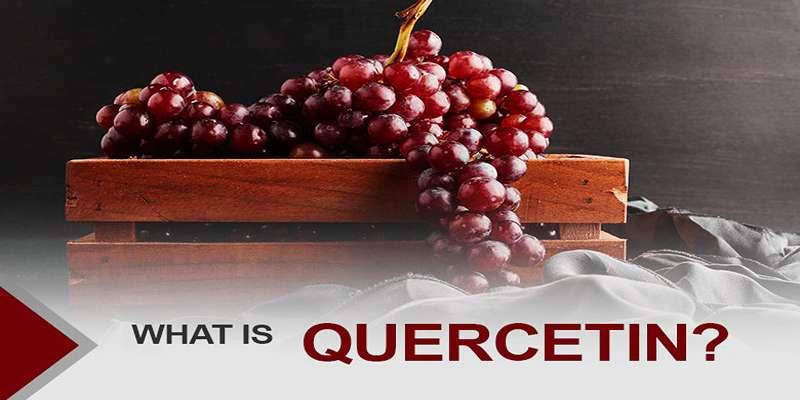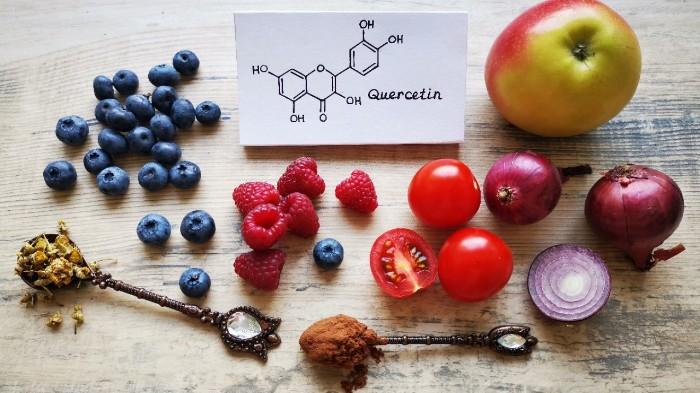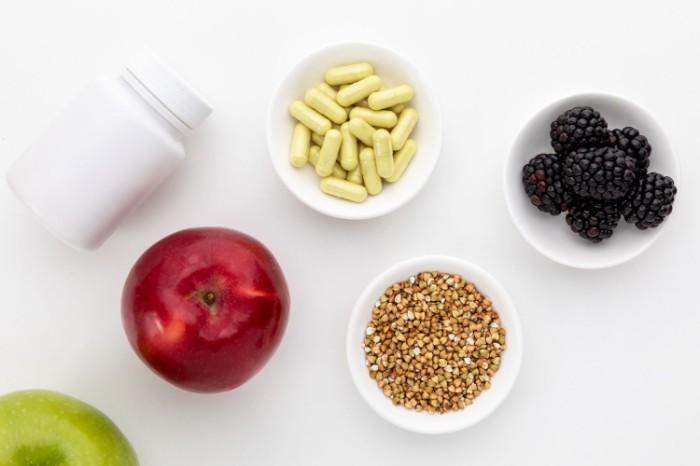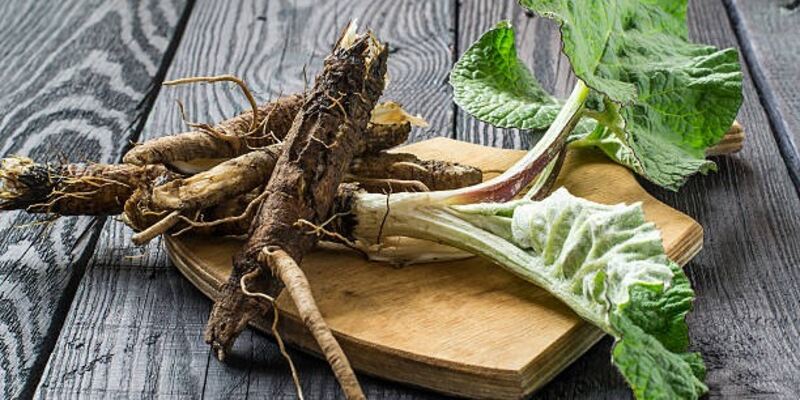
Are you looking for a powerful, natural antioxidant to help improve your overall health and well-being? Quercetin may be the answer you're searching for. Found naturally in many fruits, vegetables, leaves, and grains, this exciting flavonoid is heralded as one of nature's most potent superfoods.
It offers a range of impressive health benefits, and recent studies have revealed other remarkable properties that make it even more advantageous to include in your daily diet.
In this blog post, we'll explore Quercetin, how it works, and why so many people are turning to its countless potentials when recovering from illness or simply wanting to boost their day-to-day health. So without further ado - let’s take an informative look at what Quercetin can do!
Introductory Overview of Quercetin
Quercetin is a natural flavonoid in many fruits, vegetables, leaves, and grains. It has powerful antioxidant and anti-inflammatory properties that can help protect the body from various health conditions.
Quercetin can also help to boost immunity, regulate blood sugar levels, and reduce cholesterol. Studies have shown that it may even help to prevent cancer and other degenerative diseases.
Quercetin has been used for centuries in traditional medicine, but it is only recently that its true potential has been recognized.
Nutrition Profile

The most significant nutritional components of quercetin include Vitamin C, Vitamin A, Niacin, and Potassium. It is also rich in antioxidants, including flavonoids, phenolic acids, and carotenoids. These nutrients provide numerous health benefits, such as protection from cell damage, improved immunity, and cardiovascular health.
Quercetin is also a source of essential vitamins and minerals, including calcium, magnesium, zinc, iron, and phosphorus. These nutrients help to support the body’s natural processes and contribute to overall health.
Health Benefits of Quercetin
The powerful combination of antioxidants and micronutrients in quercetin makes it a great supplement for improving overall health.
Here are some of the key benefits associated with quercetin consumption:
- Improved cardiovascular health – Quercetin can help to improve heart health by lowering cholesterol and triglyceride levels. It also helps to reduce inflammation in the blood vessels, which can help prevent serious cardiovascular problems.
- Enhanced immunity – Quercetin may help to boost the body’s natural defenses by stimulating the production of white blood cells and antibodies. This can improve overall immunity and reduce the risk of infection.
- Reduced cancer risk – Regular consumption of quercetin has been linked to a reduced risk of certain types of cancer, including breast and colon cancer.
- Improved cognitive function – Quercetin has been found to help improve focus and concentration, which can benefit both the short-term and long-term.
Common Food Sources of Quercetin
While quercetin is available in supplement form, it can also be found naturally in many foods. Here are some of the best food sources of quercetin:
- Fruits – Apples, berries, and citrus fruits are all high in quercetin.
- Vegetables – Tomatoes, onions, kale, and spinach are all rich in quercetin.
- Grains – Barley, oats, and wheat are all good sources of quercetin.
- Herbs – Parsley, thyme, and oregano contain high levels of quercetin.
- Nuts – Almonds, walnuts, and hazelnuts are all excellent sources of quercetin.
- Tea – Black tea is a great source of quercetin.
Quercetin can be consumed in various ways, including supplements, foods, teas, and juices. No matter the method of consumption, it can have a positive impact on overall health and well-being.
Potential Side Effects

Although quercetin has many potential health benefits, it is important to be aware of potential side effects.
Following are some of the potential side effects associated with quercetin consumption:
- Stomach upset – Quercetin can cause gastrointestinal discomfort in some people. It is best to start with a small dose and increase it gradually over time.
- Allergic reactions – Some people may be allergic to quercetin and experience allergic reactions, such as skin rashes or hives.
- Blood thinning – Quercetin may increase the risk of bleeding and should be avoided by those taking blood-thinning medications.
It is always best to consult a healthcare professional before taking any supplement, including quercetin. This will help ensure it is safe for you and will not interact with other medications or conditions.
Tips on Increasing Your Intake of Quercetin Naturally
If you are looking to increase your intake of quercetin, there are a few simple steps you can take:
- Eat more fruits and vegetables – Include plenty of fresh fruits and vegetables. This will ensure that you get the maximum amount of quercetin possible.
- Switch to dark tea – Instead of regular tea, opt for darker varieties like black or green tea. These teas have higher levels of quercetin and can help boost your intake.
- Choose whole grains – Whole grain foods are richer in quercetin than refined grains. Try swapping white rice for brown rice, or choose whole-wheat bread instead of white.
- Add herbs and spices – Herbs and spices are a great way to flavor your meals without adding calories. Parsley, oregano, thyme, and basil are all high in quercetin.
By making simple changes to your diet, you can easily increase your intake of quercetin and reap its many potential health benefits.
Quercetin is a powerful plant-based antioxidant with numerous health benefits, including improved immunity, reduced cancer risk, and improved cognitive function. It is found naturally in many common foods and supplement forms.
To get the most out of quercetin, include plenty of fresh fruits and vegetables and opt for darker teas instead of regular varieties. With the right dietary adjustments, you can enjoy all of the health benefits quercetin offers.
FAQs
What are some foods that contain quercetin?
Fruits such as apples, berries, and citrus fruits are all high in quercetin. Vegetables like tomatoes, onions, kale, and spinach also contain quercetin. Grains such as barley, oats, and wheat are good sources of quercetin.
Herbs like parsley, thyme, and oregano contain high levels of quercetin, and nuts like almonds, walnuts, and hazelnuts are also excellent sources. Lastly, black tea is a great source of quercetin.
Is it safe to take quercetin supplements?
Yes, taking quercetin in supplement form is generally safe. However, it is best to consult a healthcare professional before taking any supplement, including quercetin. This will help ensure it is safe for you and will not interact with other medications or conditions.
Who needs to take quercetin?
Anyone looking to increase their intake of quercetin and reap its potential health benefits may benefit from a supplement. However, it is best to consult with a healthcare professional before doing so.
Conclusion
Quercetin is one of nature's best superfoods, providing numerous health benefits and powerful antioxidant properties. This amazing flavonoid has been studied extensively for its potential to benefit your body in numerous ways, from reducing the risk of chronic illnesses to enhancing your natural immunity.
Thanks to its strong aroma and pleasant taste, adding Quercetin to your diet can be a simple and delicious regimen for improving your overall health and well-being. Eating foods naturally high in Quercetin or taking supplements are excellent options for boosting your daily intake and reaping the rewards of this amazing nutrient.



